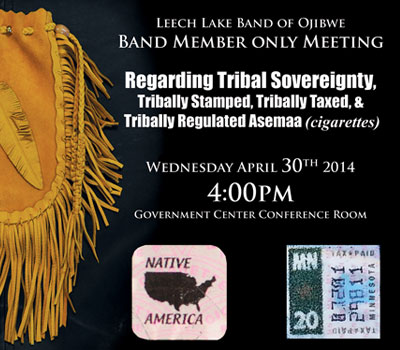- LLBO Home
- Administration
Administration
Child Support Enf.DMVEnrollmentLegal DepartmentMISOpioid Treatment
Planning DepartmentPurchasingSecurityT.E.R.O.TransitTwin Cities Office
Economic Development
ED HomeSmall BusinessesChe We SupplyED Training
CBLPSBDFMacro LoansMicro Loans
Tribal Court
Court HomeCourt FormsCourt FinesCourt Codes
Attorney ProceduresBaMeNim AnishinaabegDiversionTribal Court Awards
Tribal Police
LLTPD HomeAnimal ControlDomestic ViolenceMeth Coordinator Prescription Drug
- Education
- Health Division
Health Programs
AmbulanceBehavioral H.Car Seat ProgramChriopractic, Accupunct.D. Fitness CenterENPEmergency Prep.Environmental Health
Family SpiritFood DistributionHome Health CHRMed TransportationNutrition ServicesOccupational HealthPatient BenefitsS.H.I.P.
Elder & Disability Services
Nursing programs
Community ClinicsWadiswan "Nest"WIC
Child & Teen ClinicDiabetes Care ClinicTransform Rez
Health Reports
- Human Services
Addictions & Dependecies Program
A & D ProgramAdolescent OutpatientAhnjiBeMahDis HouseAssessment UnitFamily Violence Prevent
Outpatient TreatmentRecovery MaintenanceRelapse PreventionWomen's Halfway HouseWomen's Services
Child Welfare
Adoption ServicesChild Abuse PreventionChild ProtectionFamily Preservation
Foster CareParent Support ServicesTruancy PreventionYouth Living Skills
Other Human Serviecs Programs
- Res. Services
Reservation Services
EngineeringFacilities ManagementFleet ManagementHeavy EquipmentRoads & Survey
SanitationSmall Vehicle RepairSolid WasteWell & SepticWell Drilling
Community Services
- Resource Mgmt.
- Tribal Assistance
Tribal Assistance Programs
State Attempts to Stamp out Tribal Sovereignty with Seizure of Tribal Cigarettes
 Leech Lake Band of Ojibwe
Leech Lake Band of Ojibwe
April 25, 2014
(218) 335-8200
Minnesota Department of Revenue Agents under direction of Governor Dayton’s administration seized a shipment of Leech Lake Band of Ojibwe (the “Band”) tribally stamped cigarettes on Friday, April 18, 2014, forcing the relationship between the Minnesota Department of Revenue and the Leech Band of Ojibwe to a new low. Since 2009, the Leech Lake Band has engaged in tribe-to-tribe commerce with the Winnebago Tribe of Nebraska on the sale of tribally regulated and tribally taxed cigarettes. The majority of the revenue generated through tribal taxation is recirculated into funding tribal programs like health and wellness and small business lending. It provides alternative means for deriving income during difficult economic times.
“Every time the Minnesota Department of Revenue requested a meeting on this issue, we came to the table to meet in good faith to offer innovative and creative solutions which were consistently turned down by the State,” stated Leech Lake Chairwoman Carri Jones. “We were hoping that by engaging in good faith negotiations we would avoid the drastic measure that Governor Dayton’s administration took on Easter weekend.”
Early on, the State expressed concern that the Band’s sale of tribally regulated cigarettes would create a “black market,” but the Band’s proposals to the State included providing full disclosure and transparency as well as allowing joint regulation and information sharing to alleviate any such concern. These proposals fell on deaf ears as it has become clear to the Band that the Department of Revenue will settle for nothing less than complete and unilateral control in of spite tribal sovereignty.
The US Constitution, treaties and federal case law provide no doubt that the State is without authority to regulate the on-reservation activities of the Leech Lake Band absent Congressional authorization. The Band and the State can, by mutual agreement, share regulation such as in the tribal-state gaming compact or exchange regulatory authority for revenue sharing such as in the tribal-state tax agreement.
The Band and the Department of Revenue have been in negotiations for years over the tribal tax agreement regarding the State’s past refusal to share the state tobacco tax. In the original tax agreement, the State and the Band agreed to share state cigarette taxes collected by and on the Reservation. In violation of this agreement, the State has not shared any of the State excise tax consisting of the health impact fee and fee in lieu of settlement imposed on tobacco products. Leech Lake leaders and the Department of Revenue have been attempting to resolve this disagreement over what the Band sees as an unfair and unwarranted attack on tribal sovereignty.
The Good Friday Seizure is viewed as yet another attack on Native American rights. The Band sees this seizure as an attempt by the State to implement its unfair state taxation plan on the lands of the Leech Lake Reservation, this time resulting in the unfortunate economic isolation of a federally recognized American Indian Tribe.
Governor Dayton’s Administration is taking unprecedented action against a Minnesota tribal government, and these actions come on the heels of other identical actions taken by Republican governors Scott Walker of Wisconsin and Rick Snyder of Michigan. “There is a reason Governor Dayton’s Department of Revenue has not publicized the seizure of tribally-regulated cigarettes. The Governor wants to be seen as a friend of Indian Tribes”, stated Jones, “but I am concerned that this seizure will drive a wedge between the progress our governments have been making through negotiations.”
###


